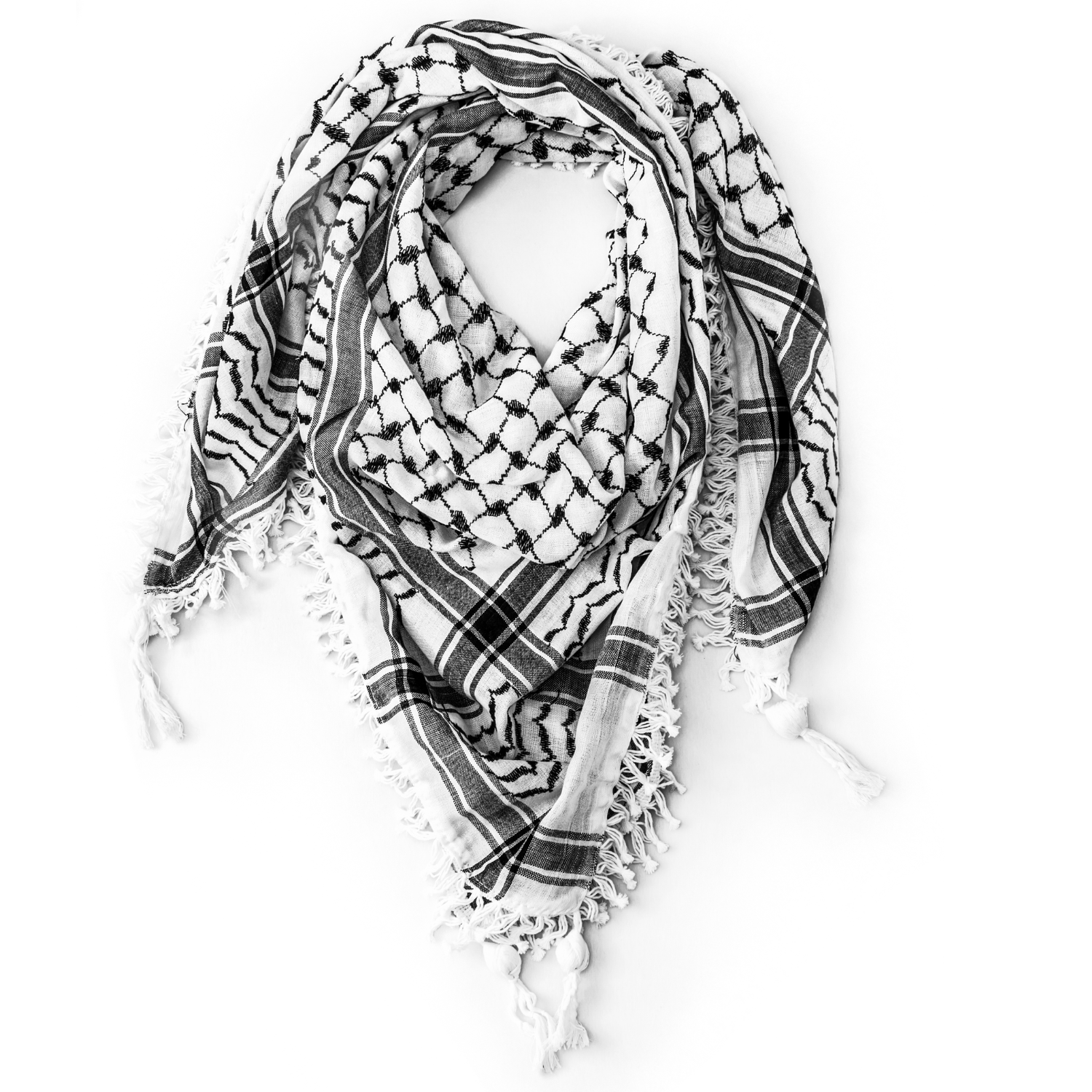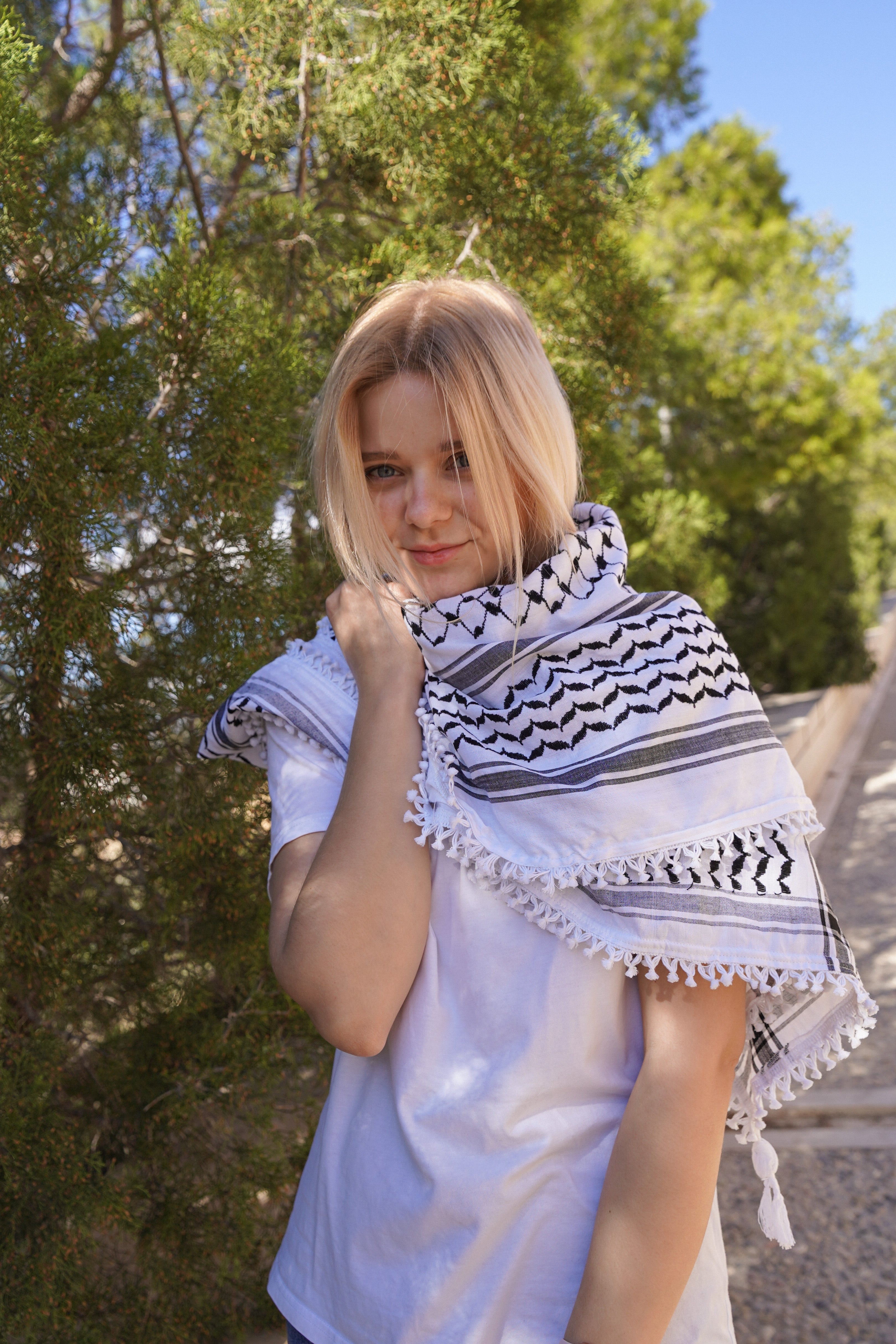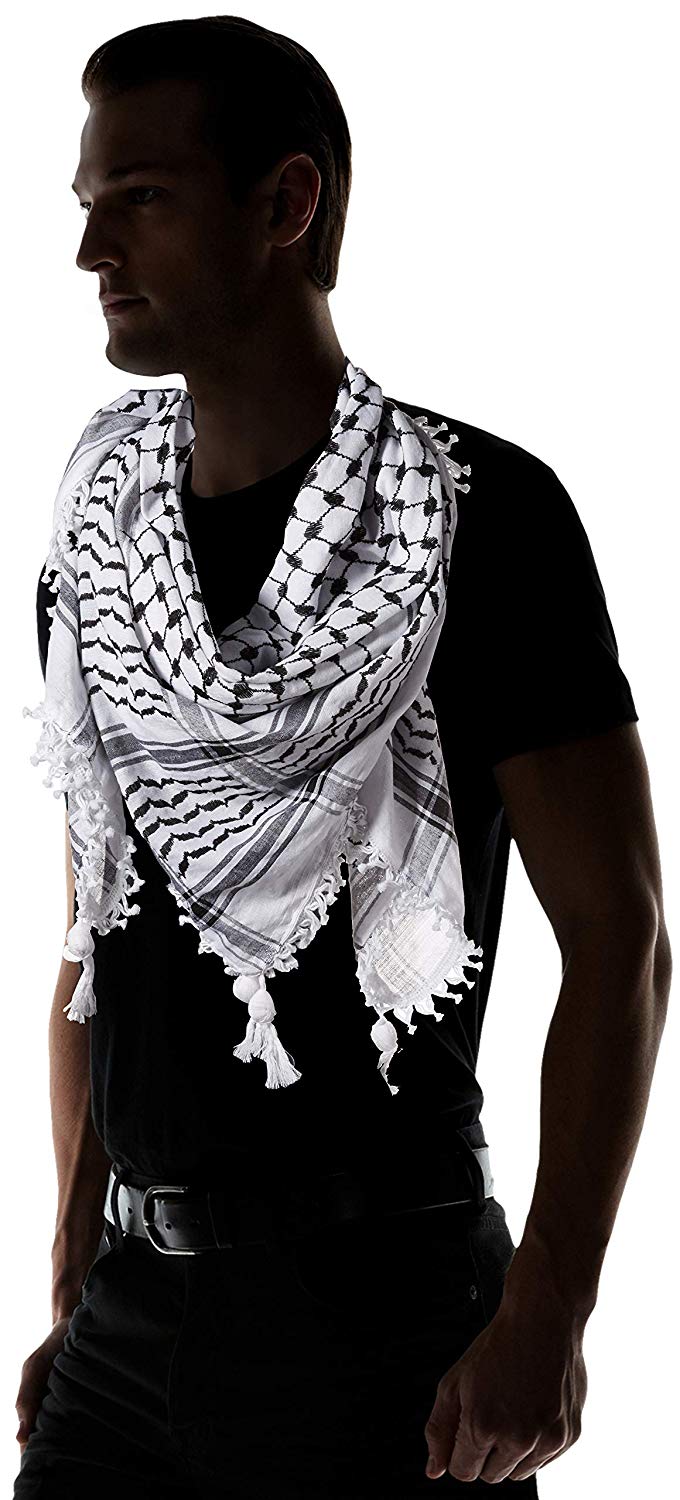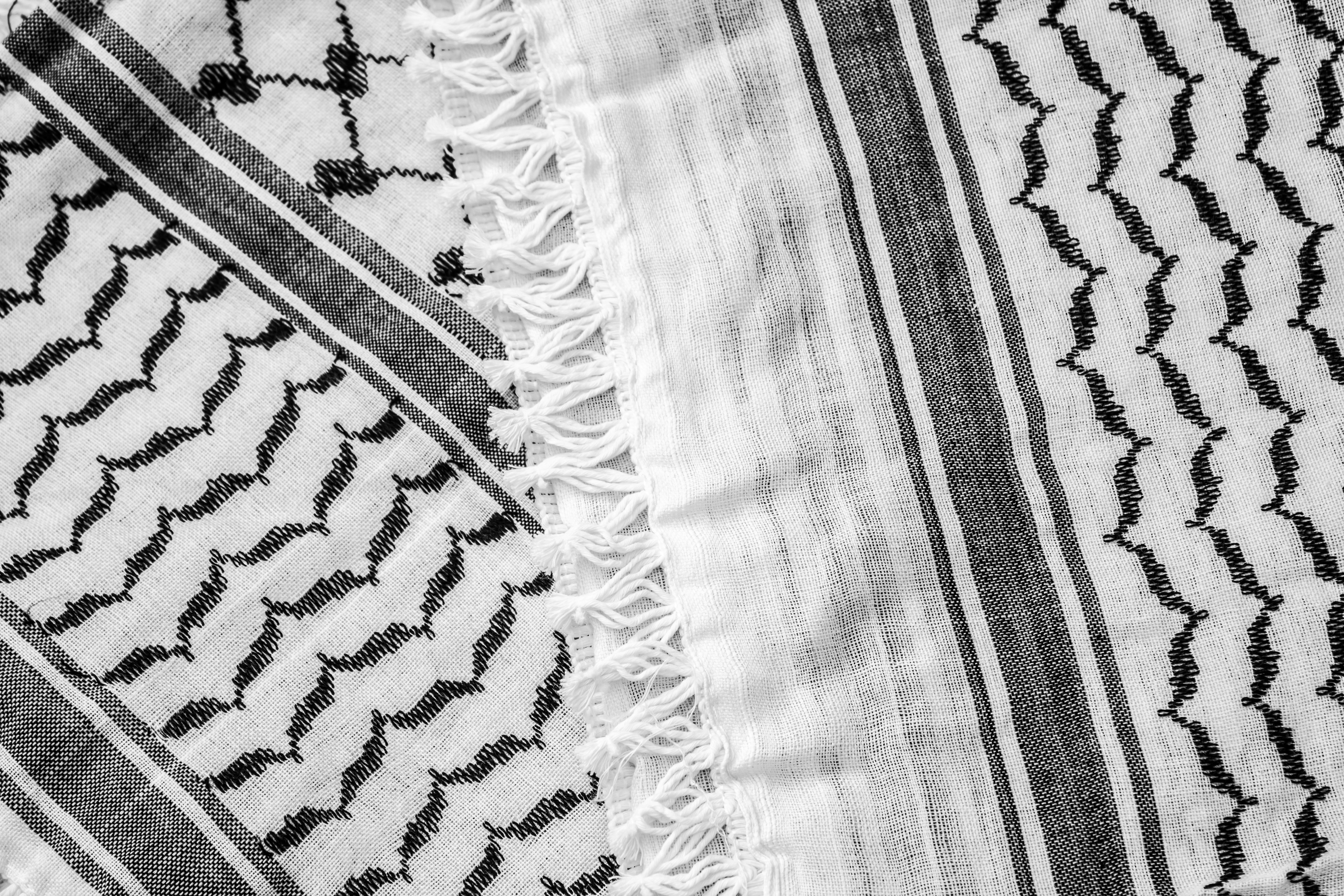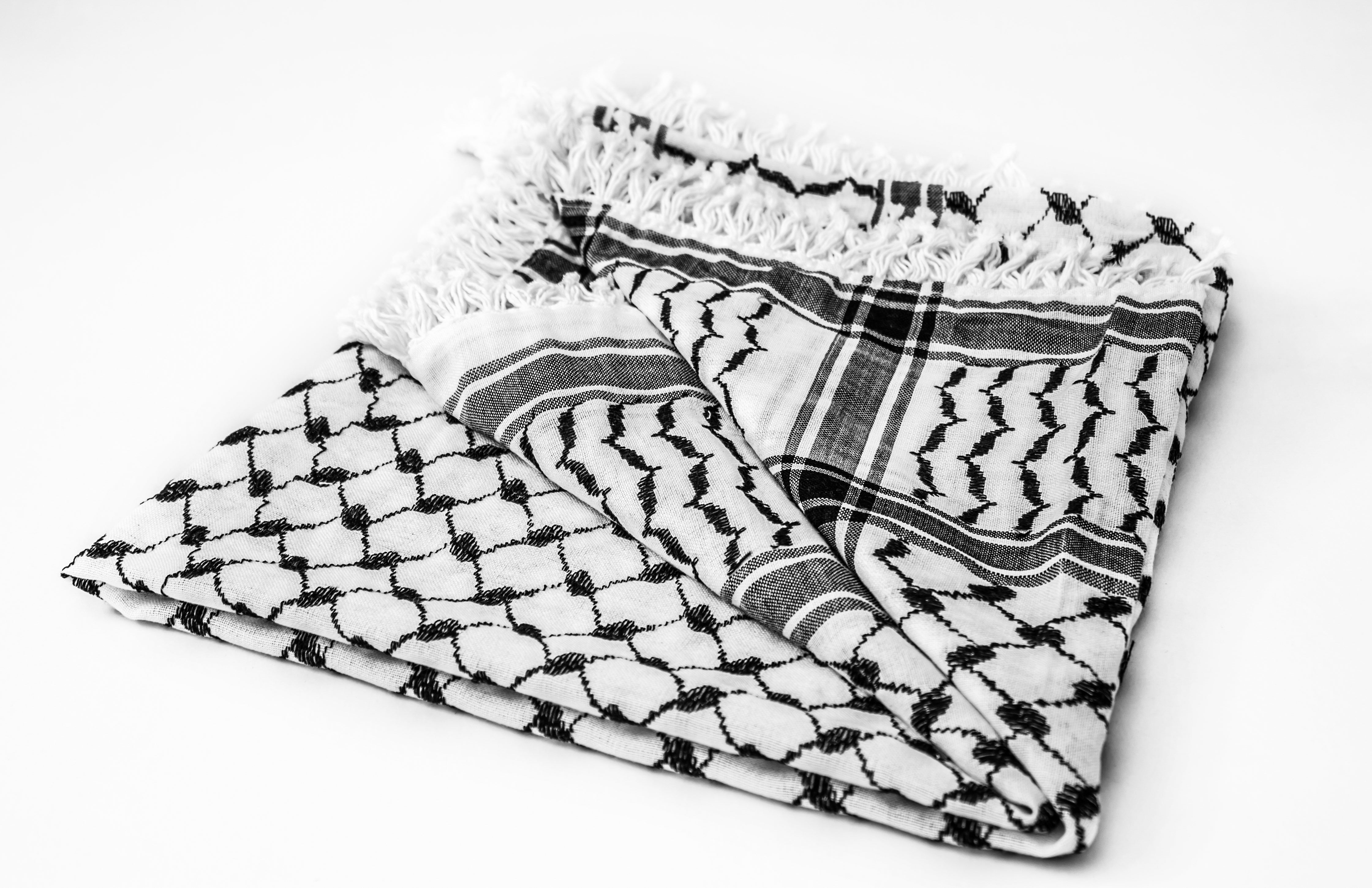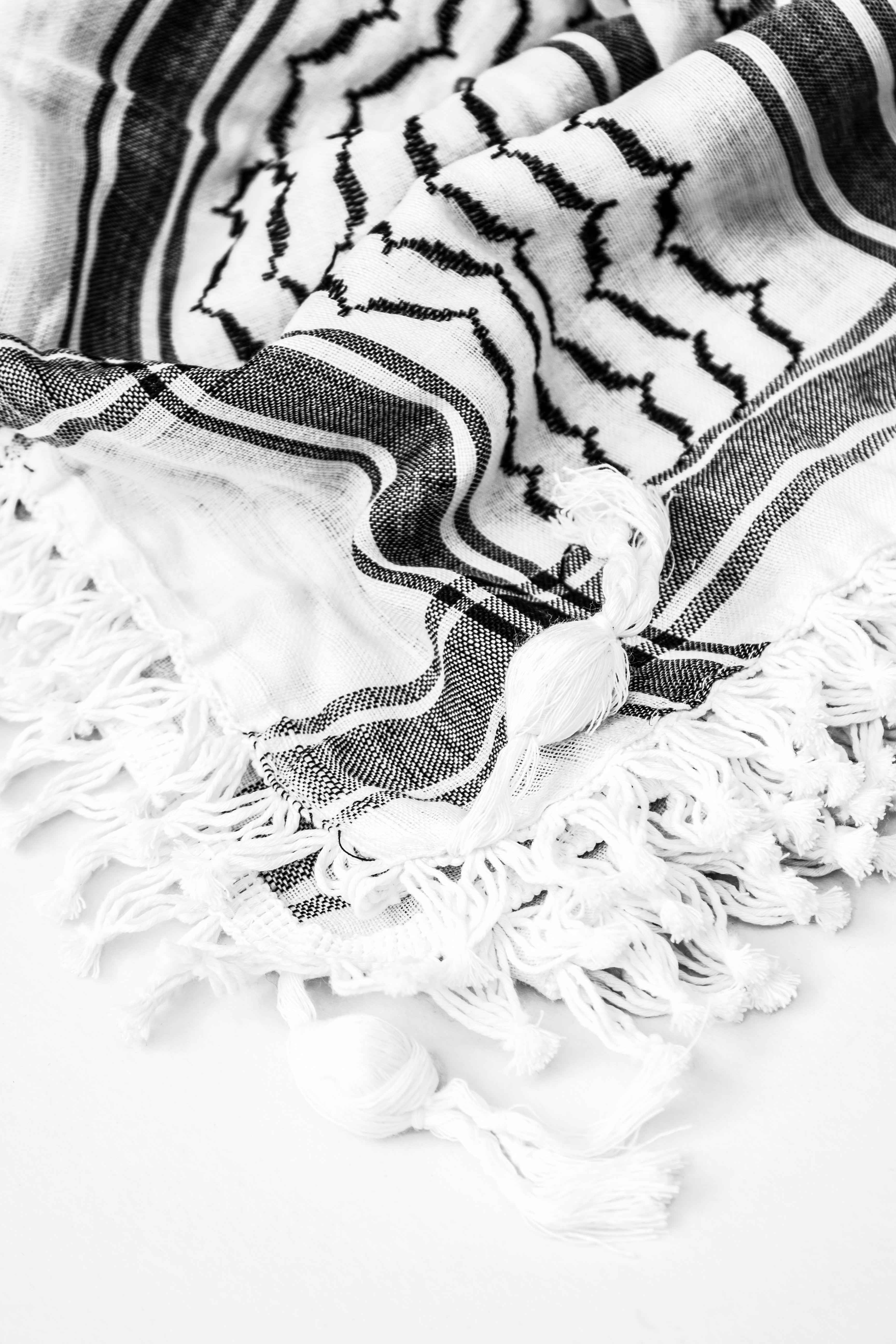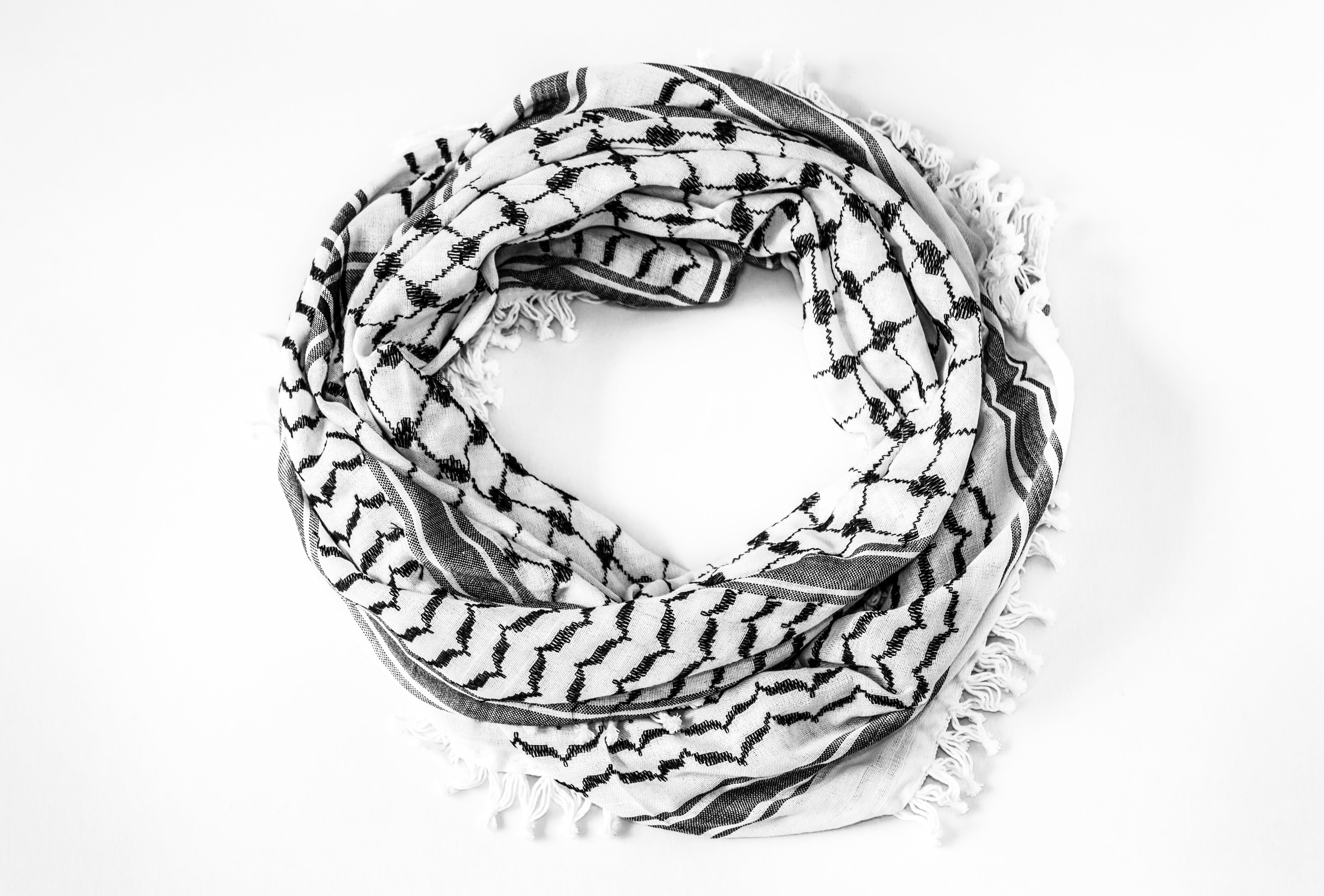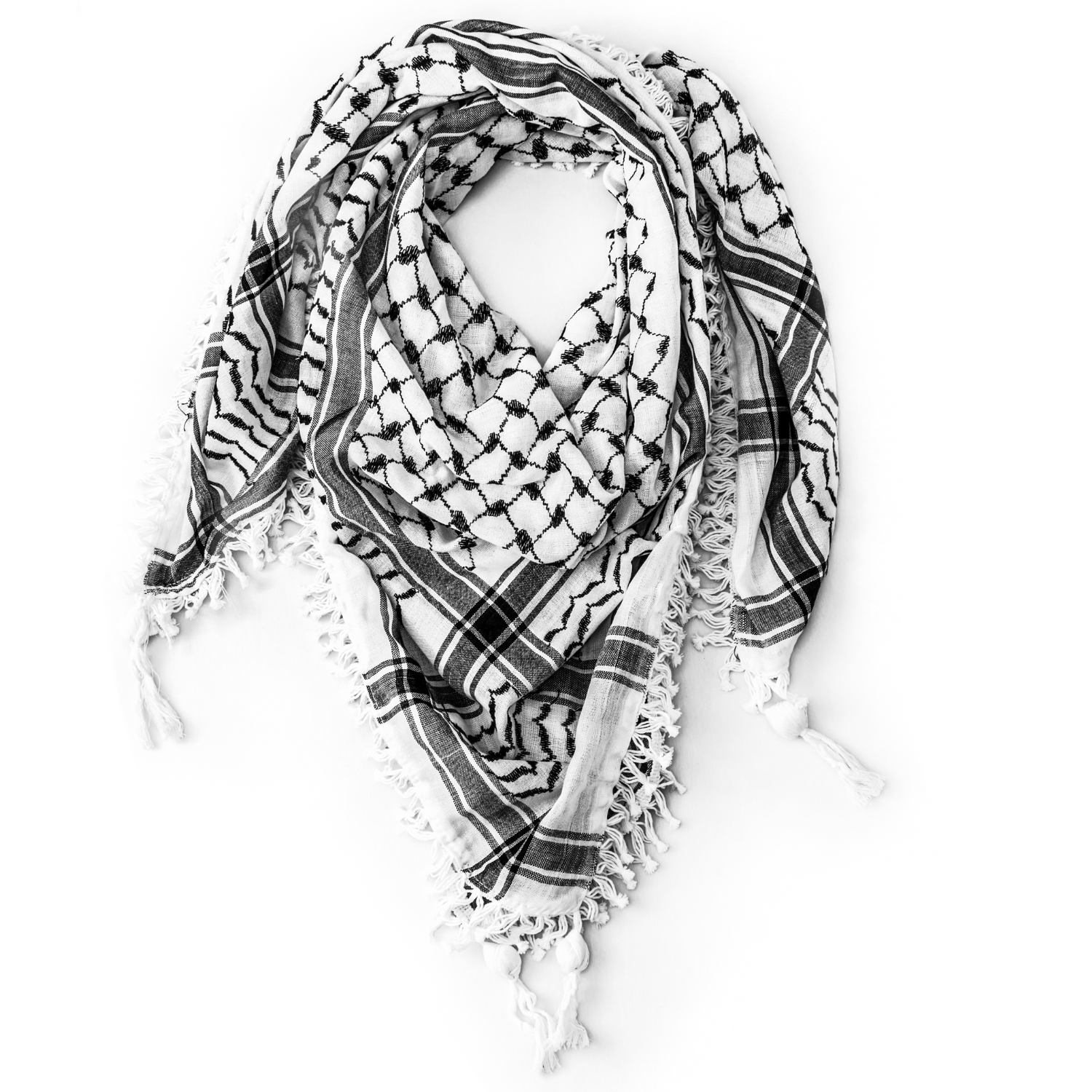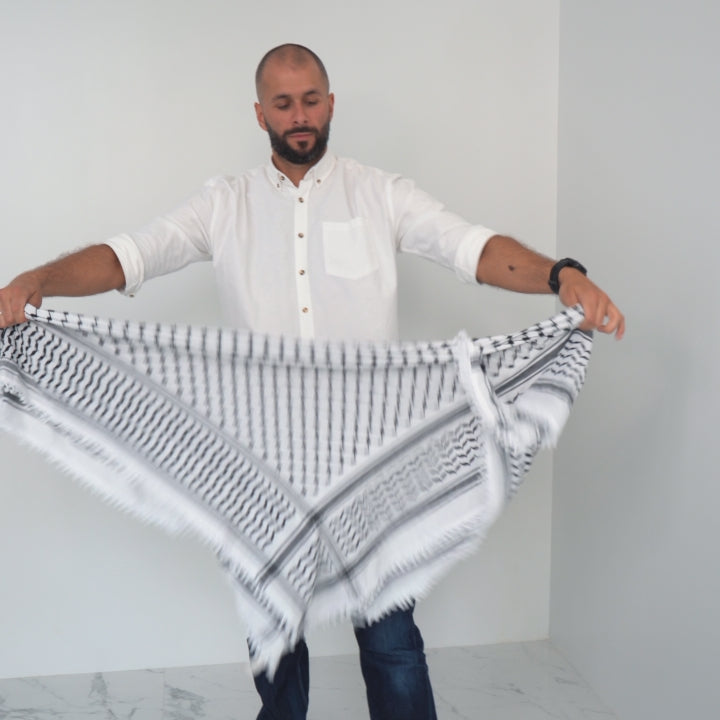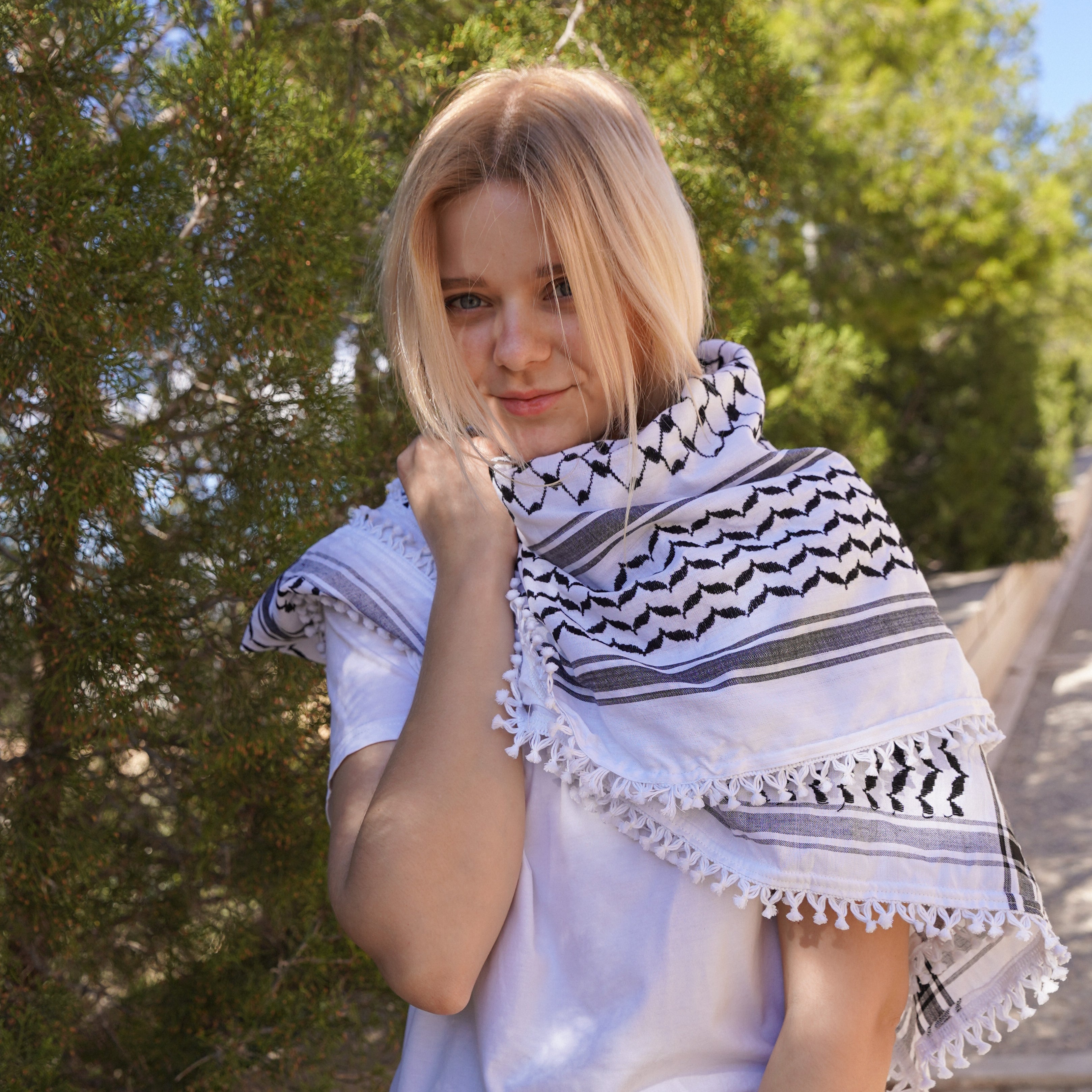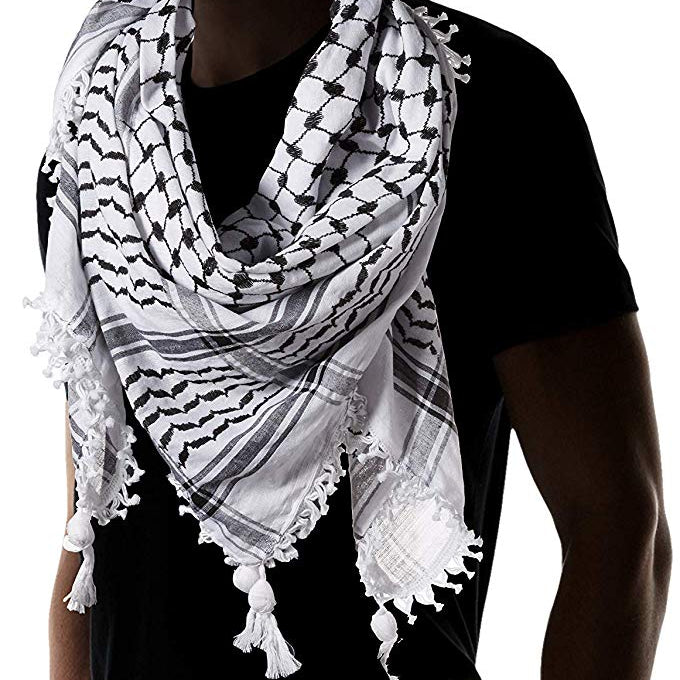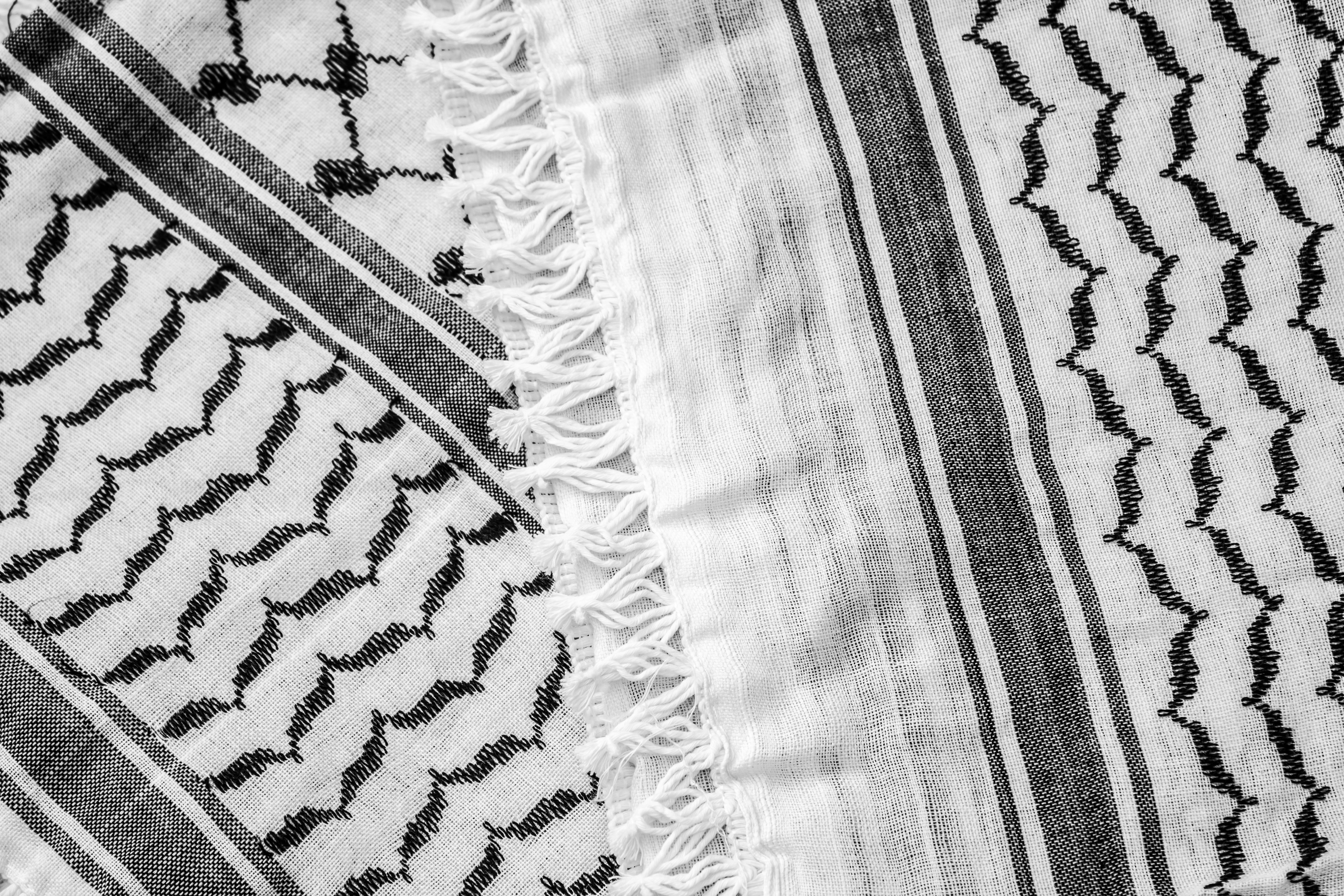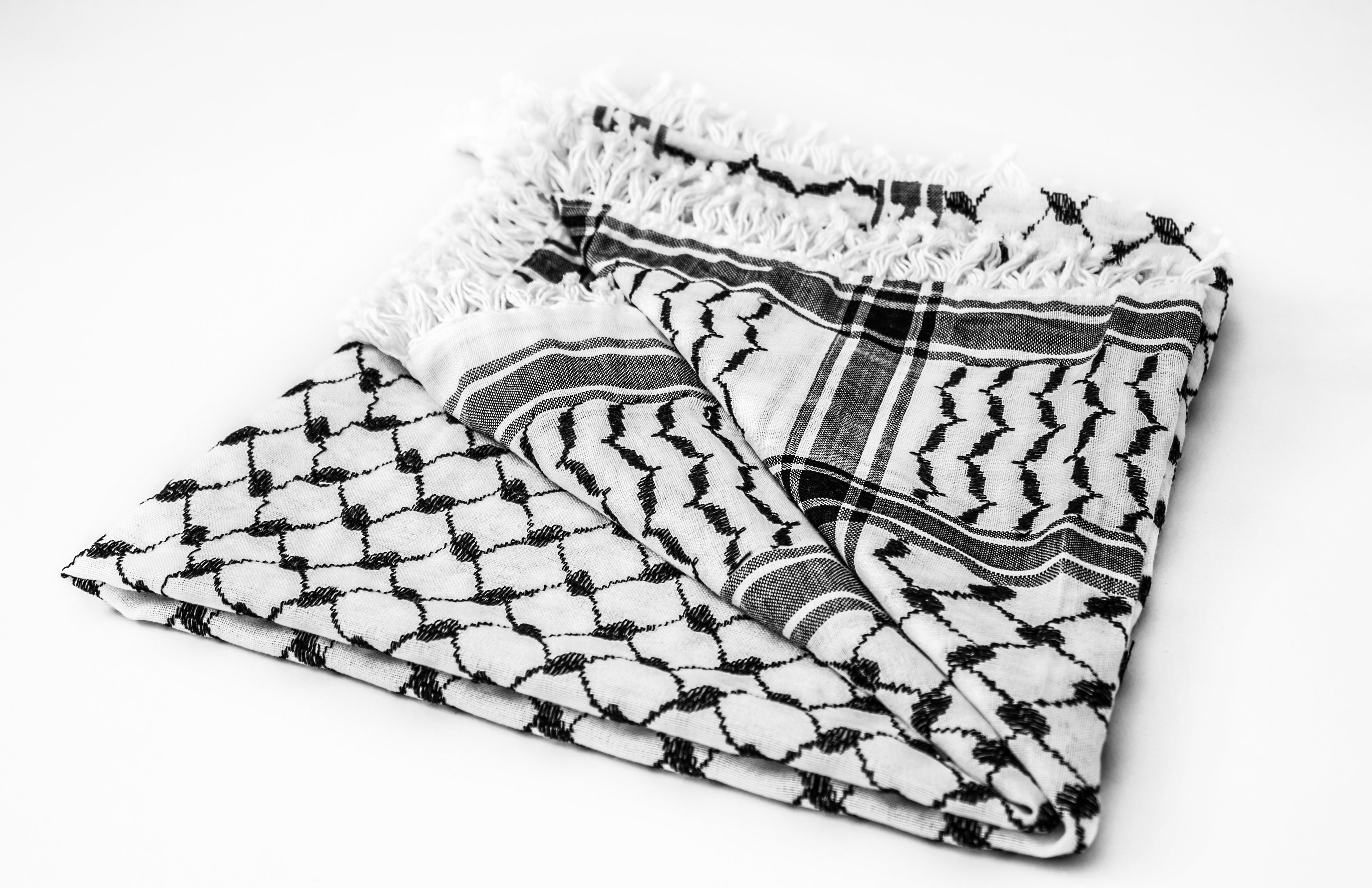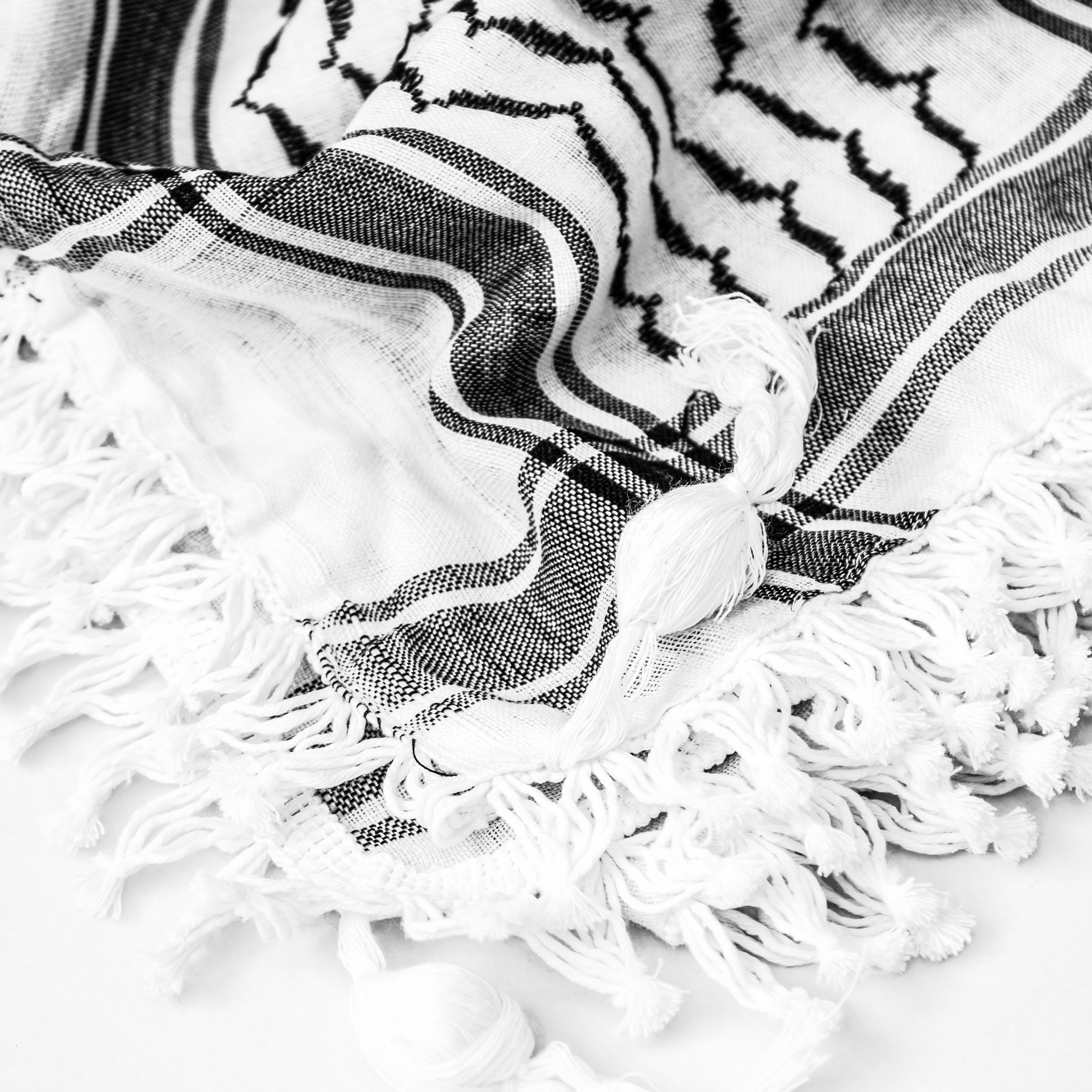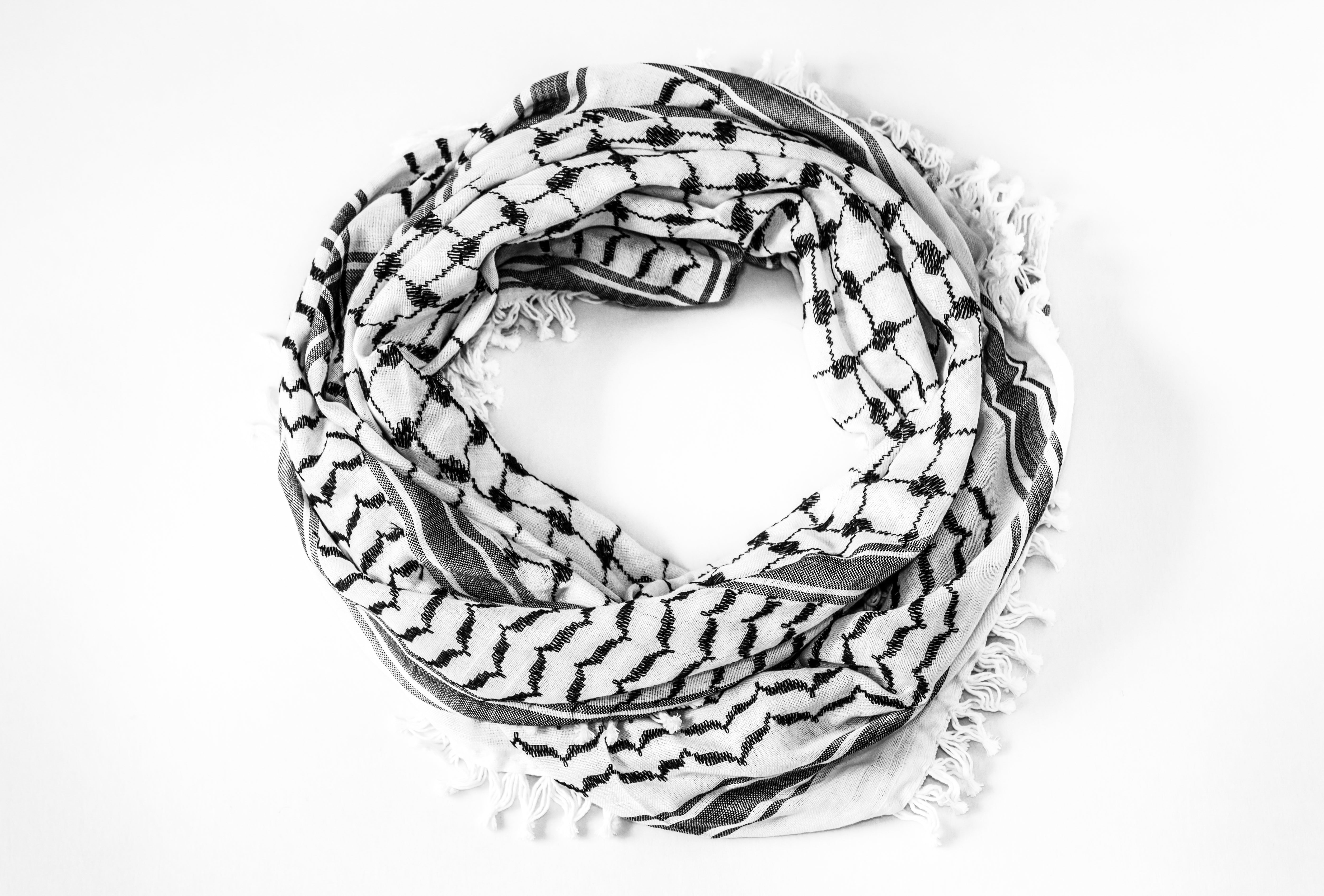Black and White Hirbawi® Kufiya
$44.99
Why Hirbawi?
Why Hirbawi?
By buying Hirbawi, you contribute to keeping the tradition of artisanal weavers alive, the last factory in Palestine and pretty much the rest of the region. You get to own a legendary piece of everyday accessories from the factory that started counting its 7th decade of operation. Read more here
What is Hirbawi Kufiya like?
What is Hirbawi Kufiya like?
Oh...Soft cotton. Most likely the biggest you can find, 47” by 47”, which is over 15 sq. ft. of awesomeness. Made on a custom kufiya loom and finished by hand.
Care
Care
Hand wash or gentle machine wash preferably in delicates bag, line dry. For more dedicated approach click here
Shipping
Shipping
Free Shipping
Shipped Shipped within US and delivered in 4-5 business days.
Expedited Shipping
All keffiyehs are shipped from the United States and usually delivered within 2-3 days. Shipping costs $4.99, and each additional item is $1.00. Multiple kufiya orders might be split into more than one package. Please refer to our shipping policy for more information
Returns
Returns
Returns within 30 days within US. Simply reply to your order confirmation email or send a message to info@hirbawiusa.com with your order number and we will reply to you with instructions. Here you may find more information about our Return Policy
Black and White Hirbawi® Kufiya
Thank you for sharing your culture with my family. These were wonderful Christmas gifts. We are eager to support the Palestinian people in every way we can and wear the Kufiya proudly in support of peace in Palestine. From the river to the sea, Palestine will be free.
Very pleased with my kufiya! Amazing craftsmanship from a beautiful people.
FCK ZIONISM
free Palestine
You may also like
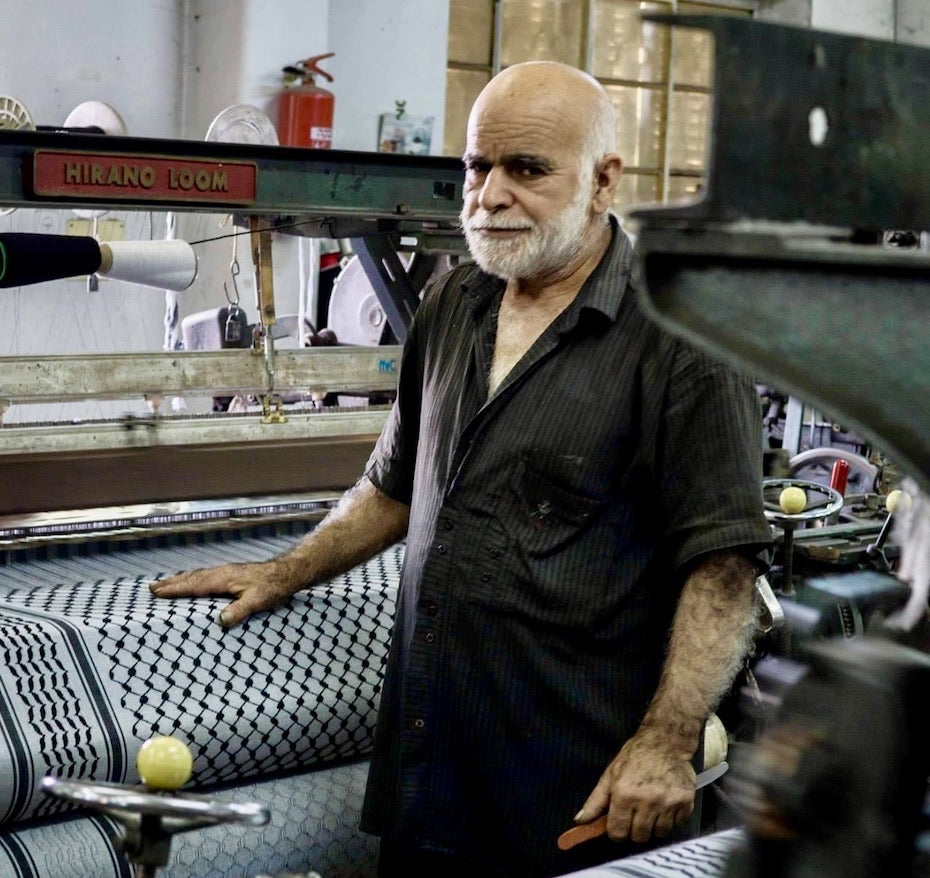
Hirbawi Stories
The History and Significance of the Hirbawi Black and White Kufiya
The Kufiya as a Symbol of Livelihood
In Palestinian culture, the kufiya is designed to resemble a fishnet, symbolizing the livelihood of the Palestinian people. Historically, fishing was a crucial aspect of the Palestinian economy. However, it has declined significantly in recent years due to "increased security measures" by neighbouring states.
Representing Ancient Trade Routes
The lines cutting through the fishnet design represent the three trade routes that pass through Palestine. These routes have been in use since the times of the Old Testament, making them a significant part of the nation's history.
Emblem of Resilience
Finally, the olive leaves on the kufiya symbolize the strength and resilience of the Palestinian people. Olive trees have economic and cultural significance in Palestine, as they are resistant to drought and grow in poor soil conditions. The depiction of olive leaves on the kufiya serves as a reminder of the resilience of the Palestinian people.
The Hirbawi Black and White keffiyeh is just one example of the many kufiyas that feature these symbolic elements. Whether all three elements are included or only two, each kufiya serves as a symbol of the rich history and culture of Palestine.
In conclusion, the Hirbawi Black and White kufiya is much more than a simple headscarf. It represents the livelihood, trade, and resilience of the Palestinian people, making it a significant part of their cultural heritage.
Subscribe to our newsletter
Subscribe to our newsletter and let us share our stories with you
Support
Search
Return Policy
Refund Policy
Shipping Policy
Payment Policy
Disclaimer
Privacy Policy
Terms of Service
Contact Us
About Us


